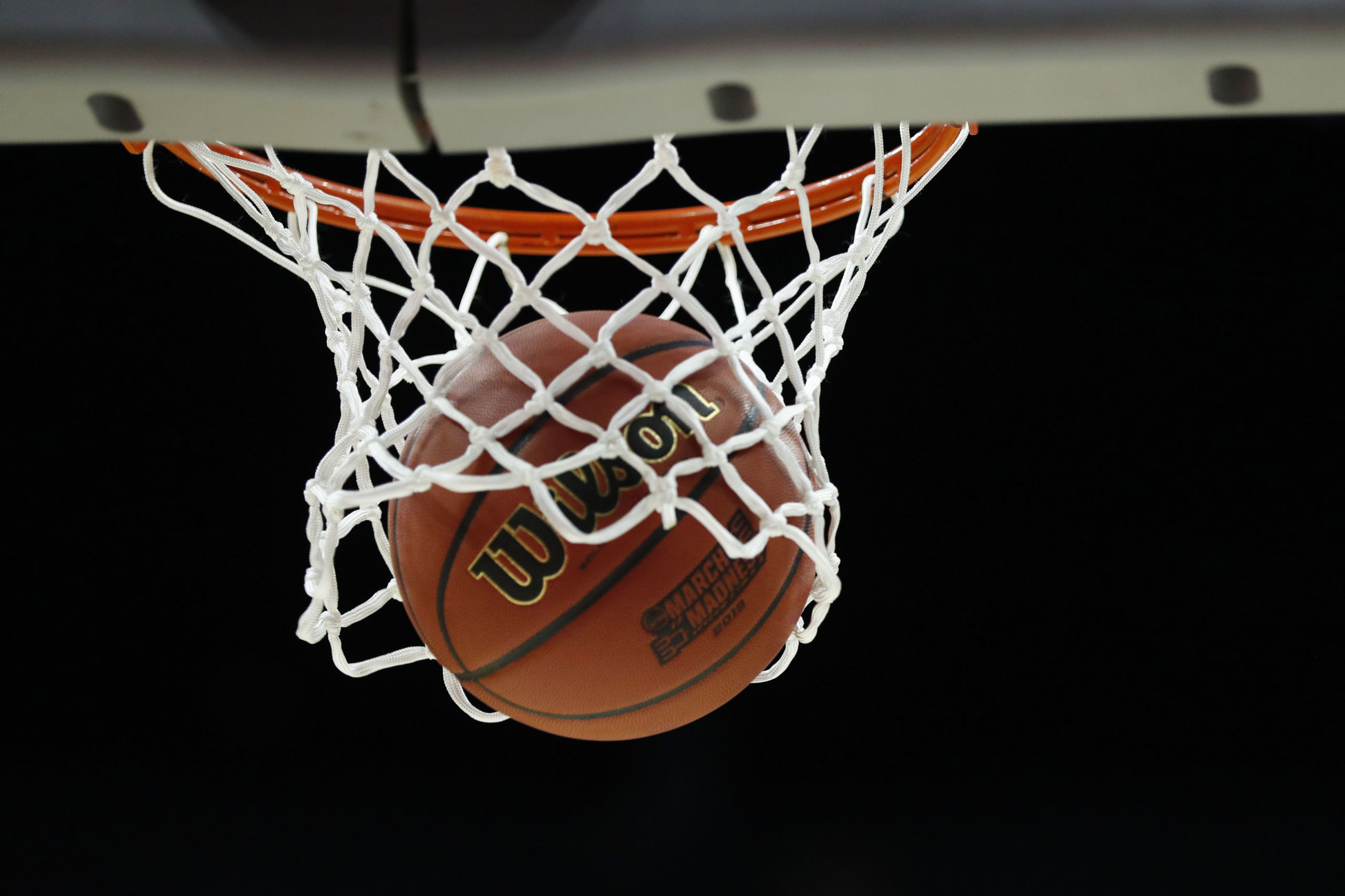“Fluid” was the word of the week within the college basketball space, with teams and conferences adjusting to coronavirus developments in virtually real-time to ensure the safest experience for fans, schools, venues and everyone else involved.
That is, until “canceled” became the more common word on Thursday – one that prioritizes health and wellbeing but comes at a steep cost to individual conferences and, as of Thursday afternoon when March Madness was officially canceled, the NCAA.
The evolving nature of the current coronavirus pandemic mandated that teams, conferences, and leagues respond to the crisis on an ongoing basis which was what happened Thursday.
As of Thursday morning, the majority of conference basketball tournaments planned to proceed without fans, as did the NCAA tournament.
Within just a few hours, the Big Ten, Big 12, SEC, and AAC all canceled their tournaments entirely, with the A-10, Colonial, Conference USA, Pac-12, MAC, WAC, Southland, Sun Belt, Big West and ACC following suit in rapid succession. The SWAC completed the sweep of college basketball tournament cancelations.
Then came the biggest of them all: the NCAA tournament.
The decisions were made not even 48 hours after the Ivy League was seen as a panicked outlier when it preemptively canceled its tournament on Tuesday.
With the live-game environment now eliminated entirely, schools and conferences will lose out on revenue from more than just ticket sales. The NCAA made $160 million in ticket revenue last year during March Madness and makes more than $800 million annually from television and marketing deals – or more than 75% of its annual revenue.
The organization made a combined $933 million in revenue from media rights fees, ticket sales, corporate sponsorships, and television ads during the 2019 tournament.
“In the world of public opinion – the NCAA and greed? That’s not a good picture for the NCAA,” Anthony Weaver, chair of Elon’s department of sport management, said. “These are student athletes. This isn’t professional sports. You don’t have to play these games. The safety and wellbeing of the student athletes who are there to participate is No. 1. You don’t want to put them in harm’s way.”
READ MORE: Live Blog: Impact of Coronavirus on U.S. Sports
Ticketing revenue was already eliminated after the decision to host the games without fans in attendance, a big enough loss for individual conferences. The complete cancelations that came Thursday, however, mean an even greater financial impact now beyond a single revenue stream.
Even before the decision was made to cancel the Big 12 tournament on Thursday, commissioner Bob Bowlsby was already acutely aware of the losses his conference would take just as a result of limiting fan access. He said Wednesday night that the Big 12 does not have insurance for the revenue lost from ticket sales at tournaments.
“It’s just about impossible to insure against this,” Bowlsby told reporters. “There will be a very substantial loss of revenue.”
The cancelation of those tournaments in their entirety will likely only amplify those losses, with television rights revenue potentially on the line as the promised programming is no longer available – particularly for the NCAA itself and Power 5 conferences with the largest contracts, all of whom have canceled their tournaments – and sponsor dollars evaporating as the event and it’s activation sites and fan eyeballs disappeared.
The exact language of those contracts is not publicly available, but one industry insider said “there is usually some sort of contingency or insurance written in when we’re talking about that kind of money. That said, this is all uncharted territory.” Another said they are “unaware of anyone [in the space] having pandemic insurance.”
The expanding financial impact isn’t necessarily limited to individual NCAA athletic departments and the sport’s governing body, either.
Those same broadcasters and networks themselves could lose large sums of money. TV contracts for the rights to conference tournaments and March Madness games are worth millions – sometimes billions – of dollars.
While the value of individual conference contracts as they relate to tournament and championship games specifically is difficult to quantify, ESPN agreed to a 15-year, $2.25 billion contract with the SEC that takes them through 2023 to televise the conference’s football, basketball and baseball games, and tournaments that were not already taken by CBS.
ESPN and its SEC Network were set to broadcast this year’s SEC men’s basketball tournament.
The CBS deal, worth its own 15-years, $55 million, brings the total SEC revenue from television rights to around $205 million per year or just over $17 million per school annually.
The Big East, broadcast on FS1, was the only conference to try and stay on course as a second-round game between St. John’s and Creighton tipped off at noon from Madison Square Garden in New York City, where 62 cases of the virus were confirmed as of Thursday morning, up nine from the day prior.
The game was stopped halfway through and the remainder of the tournament canceled. Shortly thereafter New York Gov. Andrew Cuomo announced restrictions on public gatherings of more than 500 people in the city.
The conference has a 12-year, $500 million media rights deal with Fox Sports that pays members more than $4 million annually.
“Most all of the money from the tournaments comes from TV, not on-site revenues,” Roger Noll, economist and professor at Stanford University, said. “The schools will lose money, but this is small potatoes compared to the hit they will take from closing down, as many have done already and all are likely to do before spring break is over.”
READ MORE: NHL Suspends Season Due to Coronavirus
CBS could take another big hit with the loss of March Madness programming with the cancellation of the larger NCAA tournament.
The 2016 extension between Turner, CBS and the NCAA for rights to the DI men’s basketball tournament covered eight years for a total rights fee of $8.8 billion. That puts approximately $1.1 billion dollars worth of programming in peril for Turner and CBS this season after the NCAA tournament followed the lead of its member conferences and opted to cancel.
With more than three-quarters of its revenue stream eliminated – some of which would have been paid out to host institutions (up to $200,000 per school or conference host) and NCAA members after the tournament – the NCAA will take a significant financial hit as a result of the decision.
That said, the NCAA has a supplementary fund and insurance to cover the cost of cancellation, taking into account total lost revenue and not just lost ticket revenue which should help them recuperate some, if not all, of the costs incurred thus far.
Local economies at host sites will also take financial hits without the boost that big events bring. Final Four weekend in Minneapolis last year brought an estimated $156 million in new spending to the city, according to Rockport Analytics, much of which came from the local travel spending of 91,000 visitors (not including ticket purchases) who spent more than $115 million on hotels, restaurants, shopping, entertainment, and ground transportation.
“Virologists and epidemiologists are expecting that 150 million Americans will get Covid19, 25 million will need to be hospitalized, and 2 million will die,” Noll said. “If this happens, we are in for a recession of the scale of 2008-2009 or worse. Revenue from the March basketball tournaments is a tiny part of our problem.”

![[Subscription Customers Only] Jul 13, 2025; East Rutherford, New Jersey, USA; Chelsea FC midfielder Cole Palmer (10) celebrates winning the final of the 2025 FIFA Club World Cup at MetLife Stadium](https://frontofficesports.com/wp-content/uploads/2026/02/USATSI_26636703-scaled-e1770932227605.jpg?quality=100&w=1024)















